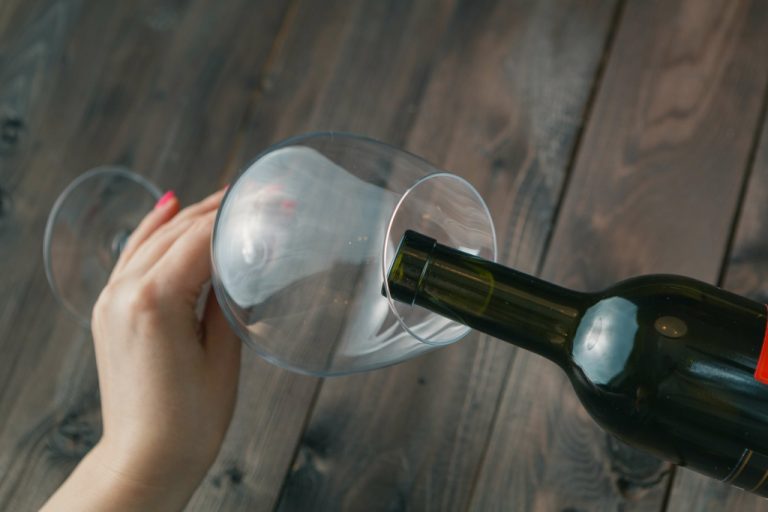Kudzu Extract: Surprising Results in Reducing Alcohol Consumption
One reason that people feel it helps with hangovers is because it may influence the metabolism of alcohol. Kudzu extracts may interact with GABA receptors and enhance the inhibitory effects of GABA. The modulation of this system could reduce alcohol cravings or help treat alcohol abuse by lowering anxiety levels and stress that are often triggers to drink. Kudzu root extract has been studied for the potential to reduce symptoms related to alcohol use and to reduce oral alcohol consumption. Some studies suggest kudzu can help decrease alcohol cravings and limit intake. While the blood flow theory of kudzu for alcoholism may be true, there is likely more going on here.
Could a Chinese herb stop you drinking too much?
A total of 21 adult males (17 Caucasian, 1 African American, 2 Hispanic, 1 Middle Eastern; mean age 23.8 ± 3.46 years, range 21–33) were recruited Alcoholics Anonymous through advertisements in local and college newspapers and flyers posted in the Boston area. Persons who responded to these advertisements were given a brief telephone screen, and invited to the laboratory for further evaluations. Persons of Asian descent were excluded because of their known increased flushing reaction to alcohol. Individuals with a body mass index (BMI) outside the range of 18–25 kg/m2 were also excluded.
The Effects of Alcohol Consumption on Hormones and Neurotransmitter Systems
In addition to the involvement of nervous system regulation, the changes in cognition caused by chronic alcohol consumption cannot be ignored. In mammals, alcohol acts on the CNS over time to enhance the excitatory NMDA signaling and discourage GABA signaling, inducing adaptation of GABAAR-mediated inhibition and a hyperexcitable nervous system. This hyperactive nervous system is dependent on the presence of alcohol; otherwise, the hyperactive state can lead to over-excitatory consequences such as seizures29. Humans often drink too much because they find being drunk rewarding in some way, and/or they find abstinence difficult. Interestingly, in studies of alcohol recognition in Drosophila, flies exhibit voluntary consumption of EtOH.

Hangovers
When, however, they had taken the kudzu beforehand, they drank an average of 5.5 units, which meant that overall they had drunk about 20% less. Then we allowed them access to the bar for 90 minutes, during which time they could have their fill of beer, wine or spirits. We were, of course, closely but surreptitiously monitoring how much and how quickly they drank. Now, many of us make the resolution to cut back on alcohol, but like all good resolutions there is the danger of slippage. So for those of us with the modest aim of just cutting back a bit, could kudzu really help? The utility and effectiveness of disulfiram are considered limited because compliance is generally poor when it is given to patients to take at their own discretion141.
If you’re navigating menopause, adding kudzu root to your routine could bring natural relief while also supporting hormonal balance. Kudzu root is packed with antioxidants like puerarin that protect liver cells from oxidative stress. Although used for centuries in Traditional Chinese Medicine (TCM), this herb has only recently gained a following in the west. A lot of this is due to the number of positives articles detailing its benefits in combating alcoholism. The articles touting Kudzu’s benefits appear mainly on TCM related websites, or sites selling the herb.
How Kudzu May Affect Alcohol Cravings
However, in a pilot toxicity study we found no change in acetaldehyde levels in kudzu-treated humans after drinking alcohol (unpublished data). The transient effects of subjective ratings of dizziness alone are insufficient to suggest the presence of a disulfiram-like effect as a result of kudzu administration. Thus, altered acetaldehyde metabolism is not a likely explanation for kudzu extract effects in humans. This randomized between-subject, double-blind, placebo-controlled study involved two weeks of baseline, four weeks of treatment and two weeks of follow-up. Seventeen men (21–33 years) who reported drinking 27.6 ± 6.5 drinks/week with a diagnosis of alcohol abuse/dependence took either kudzu extract (250 mg isoflavones, t.i.d.) or matched placebo on a daily basis. They reported alcohol consumption and desire to use alcohol using a wrist actigraphy device; twice weekly laboratory visits were scheduled to monitor medication adherence and adverse events.
This allowed the researchers to view each subject under each condition and allowed them to rule out the order of treatment as a factor. Kudzu, a well-known medicinal plant in traditional remedies, shows promise in reducing alcohol cravings and consumption. The researchers observed 12 men and women in a double-blind placebo-controlled study. The participants were either treated with kudzu or a placebo for nine days, and then received a medium or high alcohol challenge to determine how prominently they presented alcohol-related symptoms. David M. Penetar, senior author of the study and assistant Professor of Psychology in the Department of Psychiatry at McLean Hospital, said that kudzu has been around for centuries to treat alcohol intoxication, hangovers and other related problems in humans. One possibility is through the different isoflavones, which are biologically active molecules that can affect physiology, contained within the kudzu extract.
Natural Products with Anti-Hangover Properties
- Again, we calculated the total units consumed for each group, and then compared the total units consumed after placebo vs those consumed after kudzu.
- More specifically, some have claimed kudzu provides great relief from the side effects of cyclical overdrinking.
- However, most of the effects of this herb are cumulative, so they mostly happen in the long term rather than acutely.
The results showed pre-treatment with kudzu extract had little to no effect on the participants behavioral, physical or cognitive performance. However, the researchers did note that treatment with kudzu caused an increase in heart rate, skin temperature and blood ethanol levels in the participants. Based on this, the researchers hypothesized that an increase in blood ethanol levels could translate into increased effects from the first alcoholic drink and delay an individuals desire for subsequent drinks. Fructus evodiae is a widely used herbal medicine in China with anti-inflammatory and analgetic activities. Dehydroevodiamine, evodiamine and rutaecarpine are the dominant bioactive constituents in Fructus evodiae 50. The extract of Fructus evodiae could be used as a potential remedy for hangover symptoms induced by alcohol on mice by stimulating the expression of hepatic alcohol metabolizing and antioxidant enzymes 51.
Animal tests verified that the CO2 extract with 24.33% hyperforin and a very low content of hypericin inhibited alcohol intake more potently than the alcoholic extract containing 0.3% hypericin and 3.8% hyperforin. Neurochemical mechanisms are responsible for the reduction of alcohol intake and the antidepressant-like effect of HPE 105. Hypericum perforatum markedly reduced alcohol intake in msP rats, and its effect was behaviorally selective. In other studies, the GABAA receptor antagonist bicuculline and the GABAB receptor antagonists CGP did not modify the effect of CO2 extract of hypericum.
The Study: Kudzu Extract’s Impact on Alcohol Consumption
The reduction in drinking was evident rather quickly as it was apparent for the second through sixth beers and no kudzu-treated participant drank five or six beers, which suggests that binge drinking was curtailed. Meanwhile, the roots of Pueraria lobata showed inhibitory activity against mitochondrial ALDH2, and could increase the concentration of acetaldehyde in blood. Therefore, it could be used as an aversion therapy for alcohol use disorder 40. The extract of Kudzu is a safe and effective product for alcohol use disorder. It is the only natural medication regarded by the National Institute on Alcohol Abuse and Alcoholism to treat alcohol use disorder 44.
The 17 Best Supplements To Reduce Alcohol Cravings
Other GABAergic medications represent potentially promising drugs useful for the treatment of AWS and for the maintenance of alcohol abstinence. Clomethiazole, gabapentin, and γ-hydroxybutyrate (GHB) present a similar efficacy as BZs in suppressing AWS. Current evidence also suggests that gabapentin and valproic acid may be beneficial in maintaining alcohol abstinence in alcoholics with psychiatric co-morbidity. Thus, kudzu and alcohol given the importance of GABAergic mechanisms in the development and maintenance of alcohol dependence, and the interesting results that have currently been demonstrated, more research on GABAergic agents is warranted119. EtOH can produce an acute anxiolytic effect, which is related to the potentiation of GABAergic neurotransmission in the basolateral amygdala (BLA)69. In studies of acute EtOH effects on the kinetics of miniature inhibitory postsynaptic currents (mIPSCs), an EtOH (3 g/kg) intraperitoneal injection in rats produced a rapid down-regulation of extrasynaptic α4βδ–GABAARs in hippocampus within 5–15 min.

Kaun et al106 developed a conditioned place preference paradigm for flies, and showed that flies perceive intoxicating levels of ethanol as rewarding. Flies were exposed to two odors, one in the presence of intoxicating levels of EtOH vapors, and the other without. After training, flies preferred the odor that had been paired with the high level of EtOH.









